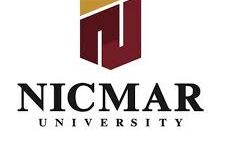On the occasion of World Food Safety Day, NIFTEM-K organized a webinar on ‘Protective Efforts and Rapid Food Emergency Control and Testing’ (PERFECT).
8th June 2024: On the occasion of World Food Safety Day, National Institute of Food Technology Entrepreneurship and Management, Kundli, (NIFTEM-K), an Institute of National Importance, under the Ministry of Food Processing Industries (MoFPI), organized a webinar on ‘Protective Efforts and Rapid Food Emergency Control and Testing’ (PERFECT). During the inaugural address, Dr. Harinder Singh Oberoi, Director, NIFTEM-K, provided an overview of the recent food safety concerns in the country. Dr. Oberoi mentioned that the theme of the World Food Safety Day, i.e., “Food Safety: Prepare for the Unexpected” is perfect for organizing PERFECT. He further emphasised that a consumer can afford to consume food that is not palatable or nutritious but cannot endanger his/her life by consuming unsafe food. While referring to the increased incidences of food borne illness and deaths as reported by WHO, Dr. Oberoi highlighted the fact that rapid methods for detection of not only food borne pathogens, but also contaminants like pesticides, mycotoxins, heavy metals, bacterial toxins, acrylamides, etc is the need of an hour. Dr. Oberoi while welcoming the panellists and the participants stressed that integrating good agricultural and post-harvest practices can help in mitigating the food borne risks and ensure the safety of the final food products. Besides, he also mentioned that in all the Bachelor and Master degree programmes at NIFTEM-K, management aspects are integrated with the food science and technology aspects. He also mentioned that some of the PhD students at the Institute are working on emerging food safety problems, such as acrylamides, microplastics, DNA aptamer based Salmonella detection methods, mycotoxins and bacterial toxins, etc. Students at NIFTEM-K are exposed to programmes in Microbiology, Biochemistry, Chemistry, Nanotechnology, Statistics, ICT, Management and Entrepreneurship, etc, besides practical exposure in the Pilot Plants which improve their understanding about food safety, quality and entrepreneurship.
The keynote speaker Dr. Iddya Karunasagar (International Food Safety Consultant to FAO, WHO and ADB) and Senior Director (International Relations) NITTE University, Mangalore, touched upon the challenges and necessary actions for managing food borne outbreaks. Dr. Karunsagar stressed upon the need to be prepared to investigate and control the food borne illnesses and outbreaks. He pointed that mock exercises are required to sensitize the agencies at all levels to make them ready with mitigation strategies for future outbreaks.
Dr. Amit Sharma, Director- Food Safety, FSSAI, acknowledged the importance of food safety and underlined the need for collaboration between the government and academia, like NIFTEM, ICMR, ICAR etc. to work together for detection and prevention of food borne outbreaks in the country. Dr. Sharma also touched upon the various initiatives being taken by FSSAI to strengthen the food emergency response system in the country.
Mr. Naresh Kumar, Application Specialist, Biomerieux, highlighted about the cumbersome and time consuming procedures for microbiological testing as the biggest challenge in ensuring food safety. He pointed towards the need to develop rapid methods to detect and prevent food borne incidences. He also showcased different rapid diagnostic tools and technologies developed by Biomerieux to enhance food safety.
Dr. Kathiravan Krishnamuthy Associate Teaching Professor, Illinois Institute of Technology, Chicago, USA accentuated the application of novel non-thermal techniques to combat spoilage with the retention of the nutritive value and sensory properties of the treated food. He stressed upon the fact that the non thermal processes like Pulsed Light and Cold Plasma should be adopted by the Food industry to not only preserve the nutrients but also improve the shelf life of the food products
Dr. Neetu Taneja, Assistant Professor at NIFTEM-K, outlined her team’s research on biofilm formation by microorganisms like E. coli and Salmonella, emphasizing its role in enhancing their long-term survival. She presented findings on the prevalence of food-borne pathogenic strains in Indian dairy and meat products, advocating for improved food hygiene practices to mitigate biofilm ingestion, and discussed interventions using phytochemicals which can help in mitigating incidences of food borne pathogens. Dr. P. Murali Krishna, Professor, NIFTEM-K touched upon the development of nanosensors for on-site food safety detection applications and also upon the role of IoT and electronics in food safety. Dr. Sarvanan Chakravarthi, Assistant Professor, NIFTEM-K discussed about the work done for the food contamination mitigation by his group, especially with reference to acrylamide detection in different fried and baked foods and the methods to reduce and eliminate them.
The Webinar ended with a statement that Food Safety is a shared responsibility and lets work together to ensure safe food for all.
 Newspatrolling.com News cum Content Syndication Portal Online
Newspatrolling.com News cum Content Syndication Portal Online







